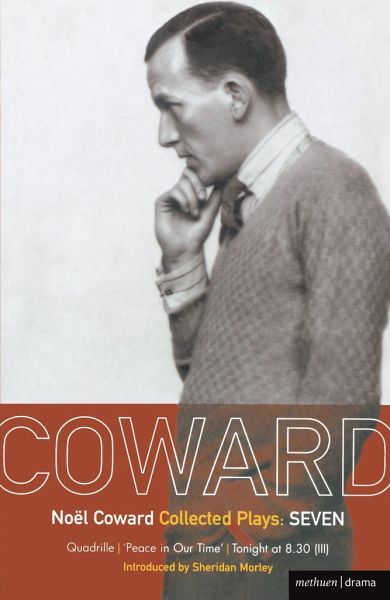
Coward Plays
7: Quadrille; 'Peace in Our Time'; Tonight at 8.30
Versandkostenfrei!
Nicht lieferbar
Weitere Ausgaben:
The Seventh Coward volume, including four pieces from the Tonight at 8.30 sequence.

7: Quadrille; 'Peace in Our Time'; Tonight at 8.30
Rechnungen
Bestellstatus
Retourenschein
Storno